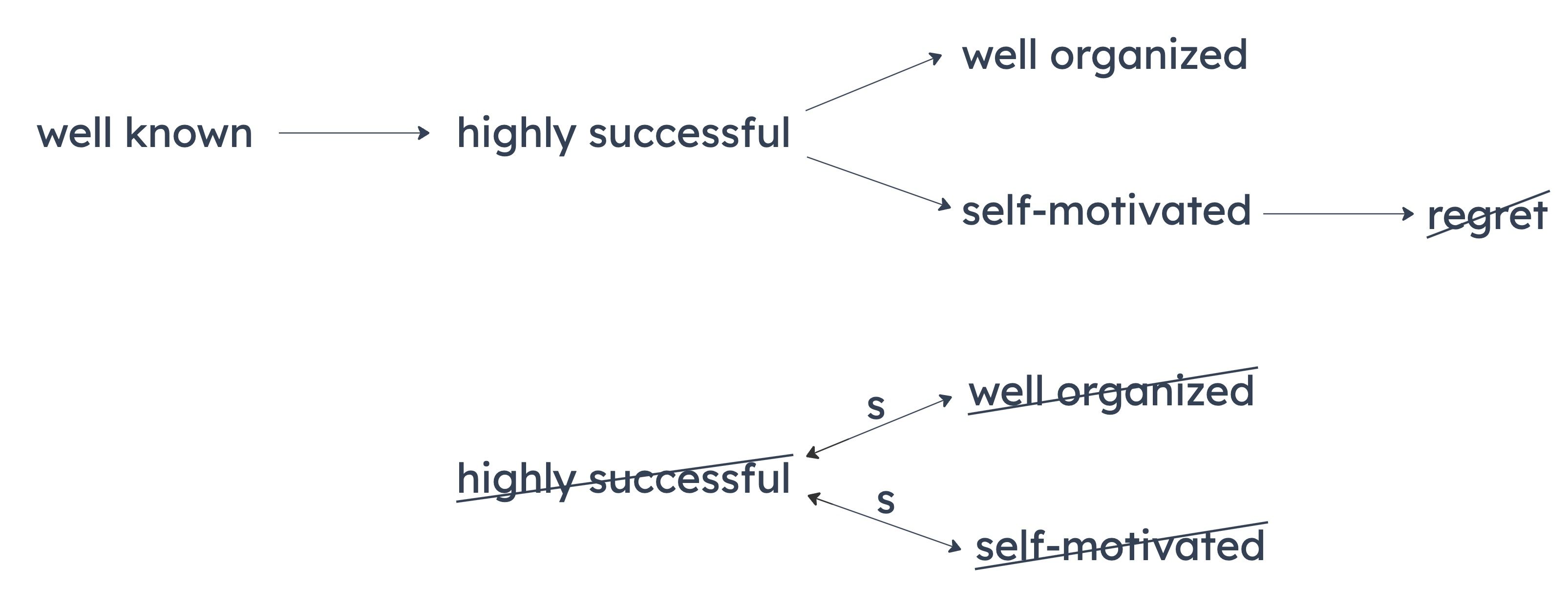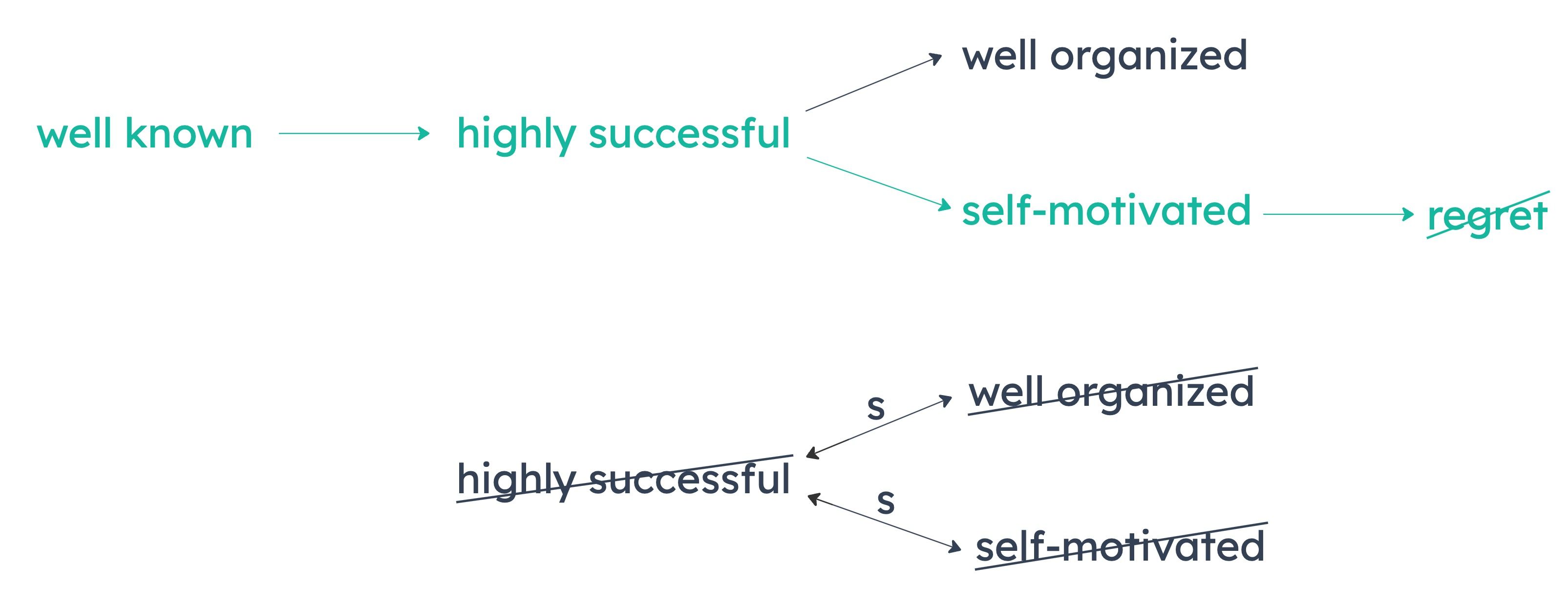LSAT 119 – Section 4 – Question 22
LSAT 119 - Section 4 - Question 22
June 2005You need a full course to see this video. Enroll now and get started in less than a minute.
Target time: 2:09
This is question data from the 7Sage LSAT Scorer. You can score your LSATs, track your results, and analyze your performance with pretty charts and vital statistics - all with a Free Account ← sign up in less than 10 seconds
| Question QuickView |
Type | Tags | Answer Choices |
Curve | Question Difficulty |
Psg/Game/S Difficulty |
Explanation |
|---|---|---|---|---|---|---|---|
| PT119 S4 Q22 |
+LR
+Exp
| Must be true +MBT Conditional Reasoning +CondR Quantifier +Quant | A
9%
158
B
3%
155
C
74%
164
D
5%
155
E
10%
155
|
144 153 162 |
+Harder | 145.1 +SubsectionEasier |
J.Y.’s explanation
You need a full course to see this video. Enroll now and get started in less than a minute.
Summary
The stimulus can be diagrammed as follows:


Notable Valid Inferences
Well known people don’t regret their career choices.
If someone is not well organized, then they are not well known.
If someone is not self motivated, then they are not well known.
A
No self-motivated salespersons who are not highly successful are well organized.
This could be false. We don’t know anything about the subset of salespersons who are both self motivated and not highly successful. We can’t say whether or not they are well organized.
B
All salespersons who are well organized but not highly successful are self-motivated.
This could be false. We don’t know anything about the group of salespersons who are both well organized and not highly successful.
C
No salespersons who are well known among their peers regret their career choices.
This must be true. This answer can be rewritten as “Well Known→ /Regret.” As shown in the diagram, by chaining the conditional claims, we see that not regretting career choices is a necessary condition of being well known.


D
All salespersons who are not well organized regret their career choices.
This could be false. “/WO→R” is not a valid inference that shows up on the diagram. It could be the case that some salesperson is not well organized and also does not regret their career choice.
E
All salespersons who do not regret their career choices are highly successful.
This could be false. (E) is an incorrect reversal of the conditional relationship. We know that all people who are highly successful do not regret their career choices. (HS→/R). (E) says “/R→HS.” This incorrectly flips the sufficient and necessary conditions.
Take PrepTest
Review Results
LSAT PrepTest 119 Explanations
Section 1 - Reading Comprehension
- Passage 1 – Passage
- Passage 1 – Questions
- Passage 2 – Passage
- Passage 2 – Questions
- Passage 3 – Passage
- Passage 3 – Questions
- Passage 4 – Passage
- Passage 4 – Questions
Section 2 - Logical Reasoning
- Question 01
- Question 02
- Question 03
- Question 04
- Question 05
- Question 06
- Question 07
- Question 08
- Question 09
- Question 10
- Question 11
- Question 12
- Question 13
- Question 14
- Question 15
- Question 16
- Question 17
- Question 18
- Question 19
- Question 20
- Question 21
- Question 22
- Question 23
- Question 24
- Question 25
Section 3 - Logical Reasoning
- Question 01
- Question 02
- Question 03
- Question 04
- Question 05
- Question 06
- Question 07
- Question 08
- Question 09
- Question 10
- Question 11
- Question 12
- Question 13
- Question 14
- Question 15
- Question 16
- Question 17
- Question 18
- Question 19
- Question 20
- Question 21
- Question 22
- Question 23
- Question 24
- Question 25
- Question 26
Leave a Reply
You must be logged in to post a comment. You can get a free account here.